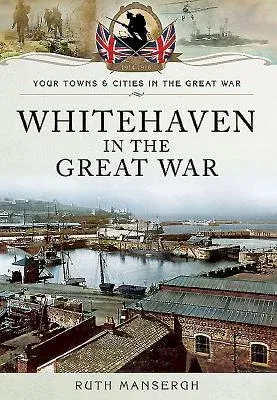Whitehaven in the Great War covers Whitehaven's immense contribution to
the Great War effort; it is thought that 625 Whitehaven men - from a
town that, in 1901, had a population of around 21,000 - lost their lives
fighting in the war. Meanwhile, on the home front, military service
deprived many businesses of their established male workers, and women
went to work in what had previously been exclusively male areas of
employment.
Notable people written about include recipient of the Victoria Cross
Abraham Acton, an Orangeman in Whitehaven; local hero Robert Curwen
Richmond Blair DSO, EM; and close friend to Kaiser Wilhelm II, Lord
Lonsdale, the famous Yellow Earl who formed his own Pals battalion, the
Lonsdales (11th Battalion, Border Regiment), to fight the Germans.
It was often said, 'No bombing Zeppelin or Gothe ever attacked our
peaceful backwater during hostilities.' However, on 16 August 1915 a
U-boat, U-24, shelled the Harrington Coke works at nearby Lowca. This
unexpected attack caught the community off-guard, and during the
hour-long bombardment fifty-five shells rained down on the factory and
the surrounding area - not one single shot was fired in return.
War memorials to those killed in the Great War have been moved following
church closures, however this book acts an practical reference guide to
where these memorials stand today. Interesting stories come to light,
like that of Baden Powell Thornthwaite, whose name was inscribed on a
local grammar school war memorial, who had not died after all, but most
likely deserted.

